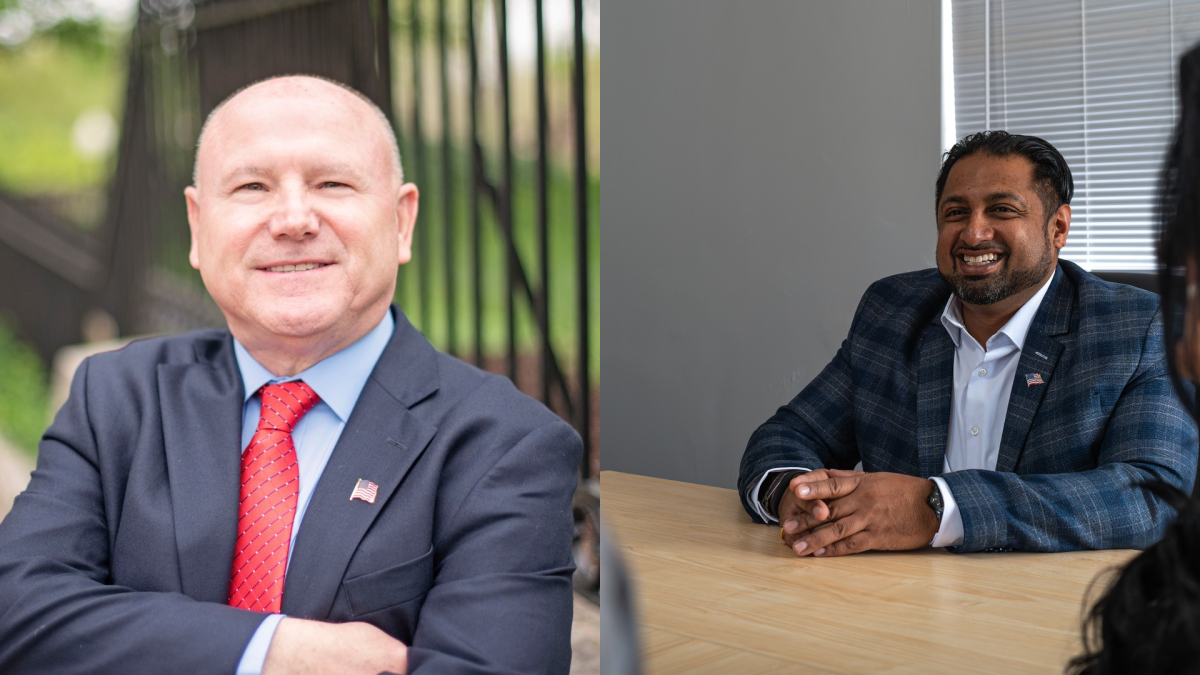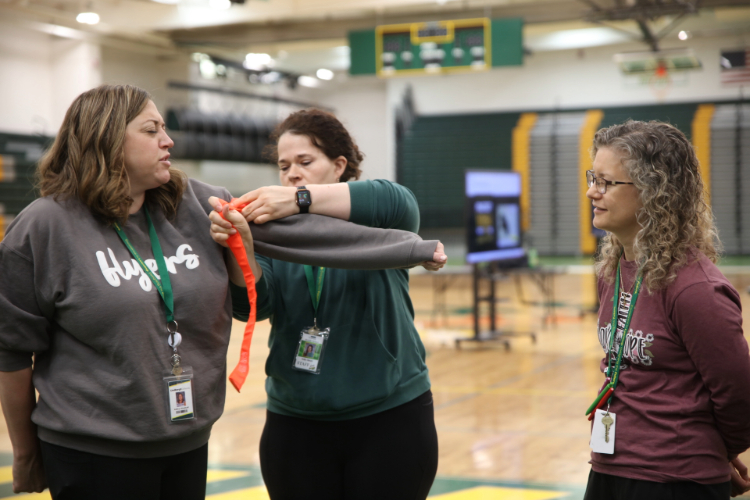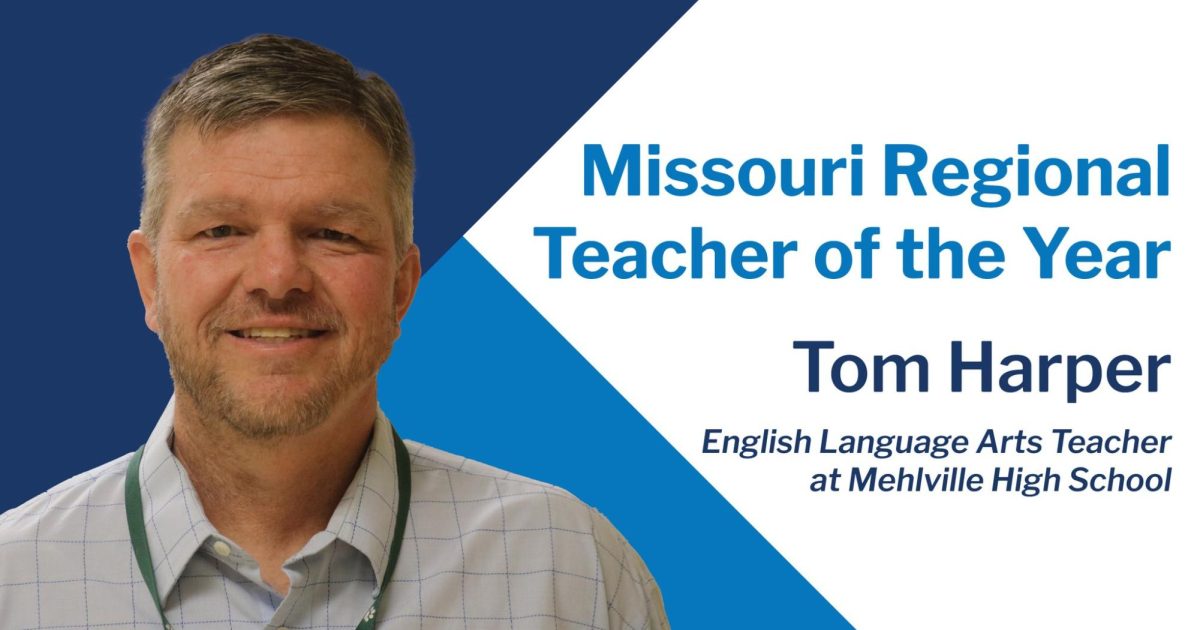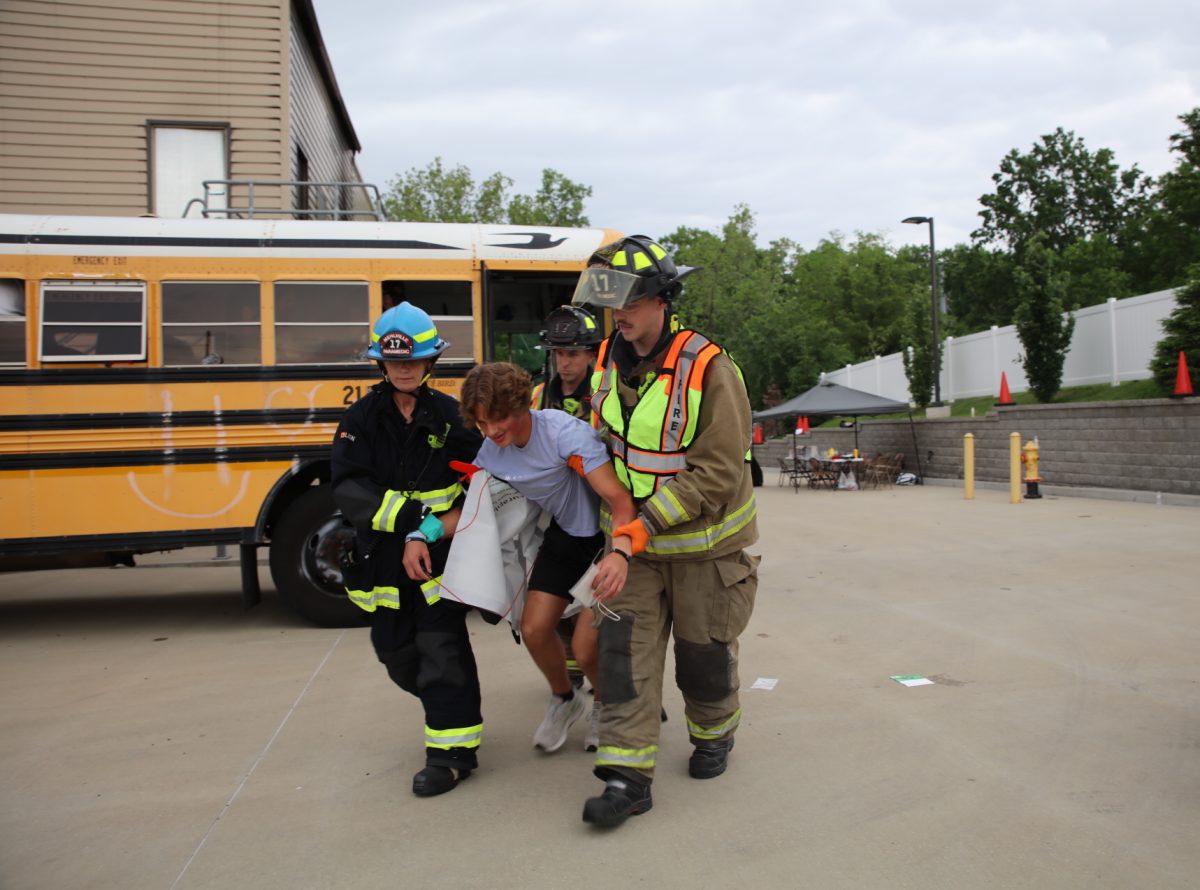
By Mike Anthony
Executive Editor
news1@callnewspapers.com
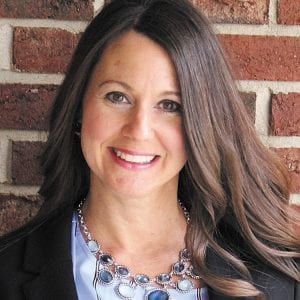
Three candidates are seeking two seats on the Mehlville Board of Education in the April 3 election.
Victoria “Tori” Behlke, former board member Ron Fedorchak and Lisa Messmer are vying for the two seats that carry three-year terms.
Asked to identify the most important issue in the race, the candidates responded:
Behlke said, “Student success and academic achievement. We have to support initiatives for students and teachers that will improve current standings and not settle for slow growth.”
Fedorchak said, “Academic performance — it is the mission of the district to prepare students for career or college. I decided to run when (Lisa) Dorsey and (Jamey) Murphy decided to not seek re-election.”
Messmer said, “I believe that communication between the board and community is the most important issue in this race. I believe that transparent, clear and timely communication helps to strengthen the relationship between the district and community. Strong schools with civic involvement make strong communities.”
Behlke, 44, 5419 Oakvilla Manor Drive, 63129, is a wellness coach and Jazzercise fitness instructor. She and her husband, Harold, have three children, including a 2015 Oakville High School graduate and two who currently attend Mehlville schools.
Behlke, who has not held elected office, said she is seeking a seat on the school board because “I am a servant leader and a visionary who would add value to the Board of Education. As a parent and community member and because of the various roles working and volunteering in the Oakville/Mehlville area, I offer a unique perspective that will be an asset to our school district and our community.
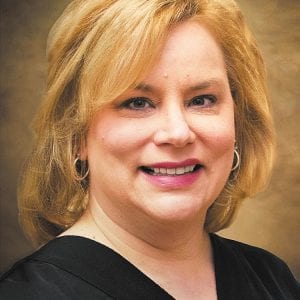
“I am able to offer ideas, information and issues with an open mind and a questioning attitude … All roads in my adult professional and personal life have prepared me for and paved the way to this meaningful opportunity.”
Fedorchak, 51, 3715 Woodbrook Court, 63129, is an adhesive specialist/engineer with Diversified Packaging Corp. He and his wife, Micki, have three children, including two Oakville High School graduates and one who currently attends Mehlville schools.
Fedorchak, who served on the school board from 2011 to 2015, said he is seeking election to “improve math scores, re-store governance and improve facilities.”
Messmer, 51, 326 Bluff View Circle, 63129, is a registered nurse at Nazareth Living Center. She and her husband, Craig, have two adult children who graduated from Oakville High School.
Messmer, who has not held elected office, said she is seeking a seat on the school board “to continue the positive momentum of the past two years, pursue academic excellence, promote clear communication between the board and public and promote fiscal responsibility by judicious stewardship of taxpayer funds. I also would like the opportunity to expand my volunteer service beyond my church community into the greater community.”
The candidates gave the following re-sponses to a Call questionnaire:
Are you satisfied with the leadership of Superintendent Chris Gaines?
Behlke said, “Yes, he is a strategic thinker and is doing a good job leading our district and moving us in a direction to prevent repeating past mistakes that have put us in a place of playing catch up.”

Fedorchak said, “Dr. Gaines is brilliant and one of the top educational leaders in the country. I am very pleased he decided to live in the community. He also has carried the tradition forward of being transparent. I do feel however, he could move faster and work collaboratively on, for example, test score improvement. He has done some things unilaterally that I would have opposed that have hurt morale.”
Messmer said, “Yes, Dr. Gaines appears to have a good relationship with parents, the community and the media. He has successfully led the district through Prop R, Prop A, opening Mosaic and waste identification and reduction.”
Do you agree with the board’s decision to hire math interventionists in elementary schools? Should that initiative be continued?
Behlke said, “Yes, I agree. I would review student achievement and teacher feedback to determine (whether) the initiative be continued.”
Fedorchak said, “It was shocking that Dr. Gaines had no plan for the falling math scores. I want to thank Jamey Murphy for stepping up. It is particularly bad when you know the administration was aware of this several months before the public. Again, we do not compare ourselves to state averages.
“We developed the Strategic Plan to be among the top districts in the county and therefore, the state.”
Messmer said, “Yes, I support hiring additional math interventionists in the elementary schools. Yes, I believe that initiative should be continued.”
Do you support Mosaic Elementary? How should the district fund it?
Behlke said, “Yes, I do support it. There were minimal start-up costs and because the school building was already being used, most of the costs associated with funding have already been accounted for. Mosaic provides another opportunity for customized learning for students and also contributes to smaller class sizes in the district.”
Fedorchak said, “I want to see data on the performance of the school. Is it cost-effective? I would support it for at least the next two years.”
Messmer said, “Yes, I support Mosaic. I believe it is a positive for the district and community. The district should fund it with current revenues.”
What is your position on block scheduling at the high schools? Are changes needed?
Behlke said, “I support block scheduling.”
Fedorchak said, “My daughters and their friends loved it and it allowed them to participate in other school activities and keep up with their work. We should look for ways to incorporate the teacher’s planning periods where we can balance classroom size and teacher ratios.”
Messmer said, “The introduction of a C day at the schools was a failure. I commend the board for recognizing this after one semester and returning to the AB schedule. I do not believe changes to block scheduling are needed at this time.”
How did you vote in the November 2015 election on the school district’s tax-rate increase measure, Proposition R for Restore? Why?
Behlke said, “Yes, I did support and vote for Prop R. I was aware that the financial situation of the district would require additional budget cuts — millions of dollars — beyond what had already been implemented and that we were the second lowest spending per student and second lowest tax rate in St. Louis city and county.
“I understood areas of deficiency, including losing school positions and so many children on a waiting list for reading help. I knew our teachers and administrators often make considerably less than these positions in neighboring districts. It was imperative that Prop R pass.”
Fedorchak said, “Yes on R. After years of increasing expenses and flat
revenues, we had cut things to the bone. We were about to do real harm to theacademic mission. The community agreed after we presented the facts.”
Messmer said, “I supported Prop R. The financial situation in the district had reached a critical point. Mehlville had the second lowest tax rate in the metropolitan area, and still does after the tax increase.
“The board was contemplating significant multimillion dollar cuts to vital programs. Teachers were leaving because they were underpaid in comparison to neighboring districts. Academic achievement was dropping. Students were on waiting lists for help in math and English. Significant capital improvement needs were not able to be addressed. Property values were stagnant or dropping. I believe the board did a great job of being transparent with explaining the needs of the district and how the money would be spent.”
How did you vote in the April 2016 election on the district’s 4-cent no-tax-rate-increase tax transfer, Proposition A for AC? Why?
Behlke said, “I voted yes on Prop A. I understood and agreed with the need for facility maintenance and upgrades.”
Fedorchak said, “Yes on A. Having served on the Facilities Committee for
four years, I saw how the HVAC systems were used to balance the budget. While I agreed that the automatic replacement program was not the smartest approach, waiting for failure was also not smart. Now we have the reserves and added revenue to keep these systems up and running. With the improvements, our energy savings will pay us back. Keeping the 4 cents also did not cost our residents additional money out of pocket.”
Messmer said, “I voted for Prop A. It was not a tax increase, rather it maintained the same tax rate. Prop A is a ‘pay-as-you-go’ process that will repair or replace damaged roofs, and HVAC equipment based on a schedule posted on the district website. This allows the district to spend all this money on necessary capital improvements. It is critically important that our students have a safe and comfortable learning environment.”
Do you support the Mehlville Strategic Plan? How is the district doing following this plan? Should the district follow the strategic plan in the future?
Behlke said, “Yes, I support the district’s Strategic Plan. The goals of student preparation, teacher support and effective and efficient use of resources along with the measures, indicators and action plans associated with each are spot on. Key terms defined in the plan reinforce the goals. A good example of key terms defined can be found in the district’s definition of engagement and how important it is to the plan’s success.
“I see evidence that the district is following the plan by increased support for professional development for teachers, implementation of math resources such as Front Row and the addition of interventionists to support the students. We have room to do more, address inconsistencies and processes that aren’t working in order to stay on track with the plan and progress as a district.
“I believe the district should continue to follow the Strategic Plan. It gives us proper direction to achieve improved student success and academic excellence and a measure for any initiatives that should be implemented to support the classroom, provide quality learning environments and teacher support, while responsibly using district resources.”
Fedorchak said, “Yes. I saw (interim Superintendent) Dr. (Norm) Ridder develop it from feedback from all stakeholders in the community. Something is missing, but I don’t know if it is because the district is not following through. The Strategic Plan keeps the district focused on the future and not in a reactionary mode over short-term issues.”
Messmer said, “I support the Mehlville Strategic Plan. I believe the district is doing a great job of meeting, or is in the process of achieving, the three directives of the strategic plan through the following actions: Improving student performance with early learning interventionists and expansion of math interventionists into lower performing schools.
“Training teachers for innovative instruction through introduction of resources such as front row, collaborative learning labs, discovery education, guided math, Makers Space, Tech Lab, Genius Hour, and small group math instruction.
“Implemented a program to find waste and reduce costs that started with asking faculty and the community for their ideas.
“I believe that the district should continue following the strategic plan. It provides clear and appropriate direction for student academic success, support for teachers to provide quality learning environments, and clear guidelines for utilizing district resources in a responsible manner. I believe that these goals are the right focus areas for the district to be successful.”
Mehlville residents showed historic levels of support for the district in Prop R. What will you do as a board member to maintain that good will between the district and community?
Behlke said, “I will ensure money is spent as promised and also communicated to residents. I will work to maintain community trust through improved communication so our community is aware of district initiatives that lead to the success of students, as well as individual school and overall district achievements.”
Fedorchak said, “The key to the success of Prop R was to survey and report to the stakeholders. I would continue these projects and focus on progress. A board member should perform like a car driver — look forward 80 percent to 90 percent of the time and look back 10 percent to 20 percent of the time.”
Messmer said, “As I previously stated, I believe that the board did an excellent job of being transparent with communicating the dire financial situation the district was facing. I will continue to promote transparent communication through in person dialogue, email and social media. I will work to ensure that the funds are spent as outlined by the board when Prop R passed, based on current data as unforeseen emergencies or situations may occur.”
If additional revenue is needed for the school district, how do you propose obtaining that revenue?
Behlke said, “First, I would review all spending and prioritize what we have/need. I would communicate those needs with the community. I would get community feedback on what is needed based on their experiences, thoughts and feelings and gain a strong understanding of why. I would ask the community if they would support additional needs.”
Fedorchak said, “User fees in some cases. Refinancing of certain debt. Seeking opportunities to grow enrollment. I would support a ballot issue for construction bonds for new facilities.”
Messmer said, “First, I would assess if the there is a true need for more revenue. I would communicate the situation with the community and seek their input on ways to increase funds. If there is a need to cut programs I would look for programs or items that do not impact student performance and reduce or eliminate them. If the district could not cover the cost without damaging academics, as a last resort, I would support asking the community if they are willing to support the financial need.”
Were you satisfied with the redistricting process that occurred last year?
Behlke said, “Yes, since redistricting was necessary and because of all the options given with grandfathering and school-choice waivers, I understand it affected approximately 200 children, which is small considering the total population of our district.
“The committee was transparent and offered good communication led by Dr. (Whitney) Maus and Mrs. (Kelly) Roberts. The volunteers that took on this committee commitment had a difficult job to do and handled it with professionalism. I acknowledge that it’s difficult to be a family that is affected by redistricting.”
Fedorchak said, “The process appears to have gone as smoothly as it could. Redistricting is always difficult.”
Messmer said, “Were you satisfied with the redistricting process that occurred last year? The process appears to have gone as smoothly as it could. Redistricting is always difficult.”
What political party do you identify yourself with?
Behlke said, “Nonpartisan.”
Fedorchak said, “Constitution Party.”
Messmer said, “Boards of Education are not political entities. I am not registered with a party. I consider myself to be a moderate conservative.”
How would you work to keep politics out of the board’s decision-making process?
Behlke said, “I would focus and encourage others to ensure that all district initiatives and expenditures have the goal of supporting the classroom. When you focus on your why, the pathway to achieve that becomes clear.”
Fedorchak said, “Always focus on the mission of educating children of the district, the key is to listen, debate and then act in unison.”
Messmer said, “I will focus on the goals as outlined by the Strategic Plan, and work to keep personal politics out of the decision-making process.”
Should the Board of Education record its closed sessions? Such recordings would be a closed record and not available to the public.
Behlke said, “I would ensure that we are following the Sunshine Law and any other applicable laws for closed session. The Sunshine Law determines what can be discussed in a closed session and because these items are more sensitive, closed session is the appropriate place for it. However, this should not change the type of conversation occurring in closed session among board members.”
Fedorchak said, “Recording of minutes meets the state statute. Taping or recording the actual discussions could allow for the discussions to be leaked or used politically.
“Even in the FBI, politics can lead to abuses of power.”
Messmer said, “The Sunshine Law determines what items can be discussed in closed session, including items of personal and sensitive nature.”
How do you feel about charter schools?
Behlke said, “I think charter schools are a great concept. However, if public funds are used to fund them, they should have the same accountability as public schools.”
Fedorchak said, “I don’t like the idea of taxpayer money being spent without oversight. I do like the idea of innovation that can come from charter schools in failing districts.”
Messmer said, “Charter schools may be a great choice for children residing in underperforming school districts. If public funds are used, then there should be oversight, transparency and accountability of how the funds are spent.”
How do you feel about the voucher system being promoted as an alternative to the current system?
Behlke said, “I believe the voucher program might be a possible useful option to students that are in an underperforming school district, but if schools are performing well, it’s a disruption to our current system. I would not support a voucher system. I would prefer a focus (on) resources to fix the root cause of underperforming district.”
Fedorchak said, “Public schools benefit the entire community. So, the argument for vouchers to carry formula funds over to private schools would create uncertainty for the public system. If you suddenly have 20 percent of your students leave or you see a 20 percent increase in enrollment, you could have problems with staffing or with facilities. I also think the private schools would regret taking government money because strings will be attached. I could see prayer being banned in Catholic schools or offensive curriculum being required by the state. It’s good on paper but filled with pitfalls in practice.”
Messmer said, “Just like charter schools, the voucher system may be a great choice for children residing in underperforming school districts. School voucher programs may limit who eligible for them, which is a concern for me. At this time, I would need more information about how a voucher system would work in Missouri. I would not pursue a voucher system as a board member.”
What is your plan to oversee the district’s increased revenue from Prop R? How will you as a board member ensure that the money is spent as the board promised?
Behlke said, “I would continue to utilize the Finance Committee who has reviewed the first year and verified what was promised was what was spent. I will also monitor financials regularly and when decisions are made, I will verify that they are in line with the promises of Prop R.”
Fedorchak said, “Follow the Strategic Plan. That’s what people voted for. We need to stop accumulating (and) put the money to work.”
Messmer said, “I will work with Dr. Gaines and (Chief Financial Officer) Marshall Crutcher to ensure that promises are being met and monitor the Prop R budget for what is spent against the expected expenditure set by the Finance Committee. I will follow up with any discrepancies.”
The district had a record number of teachers leave three years ago for other jobs and districts. What do you propose to retain teachers?
Behlke said, “I support the district increasing the professional development budget because of the passage of Prop R. We should maintain a salary schedule that will attract and retain teachers. Have professional development areas be chosen in collaboration with teachers to best support their needs and to ensure the goals of the classroom support for student success. I support creation of a culture within each school and as a district
Fedorchak said, “Improve working conditions. Balance the salary schedule. Teachers are the talent that make things go. In sports, a great manager knows winning starts with great players. It’s the same in schools.”
Messmer said, “Failing to retain quality teachers is costly to the bottom line, in addition to training time and investment, lost knowledge, insecure coworkers, and low morale. Frequent teacher turnover has also been shown to negatively impact student success. I would ensure that managers/supervisors do the following: Have clear and appropriate expectations of employees without overloading them. Provide feedback about performance, including what the employee is doing right. This ensures that the employee feels valued.
“Allow employees to provide feedback back to the principal, superintendent and Board of education. Keep employees motivated — allow them freedom to develop their own style of teaching and maintaining their classroom, staff development, extracurricular activities, et cetera. Maintain fair and equitable treatment.
“Provide teachers with the tools and assets they need to do the job well. Make employees feel rewarded, recognized, and appreciated. This can be as simple as a thank you or talking to them about what they need in the classroom. Support teachers during standardized testing.”


















